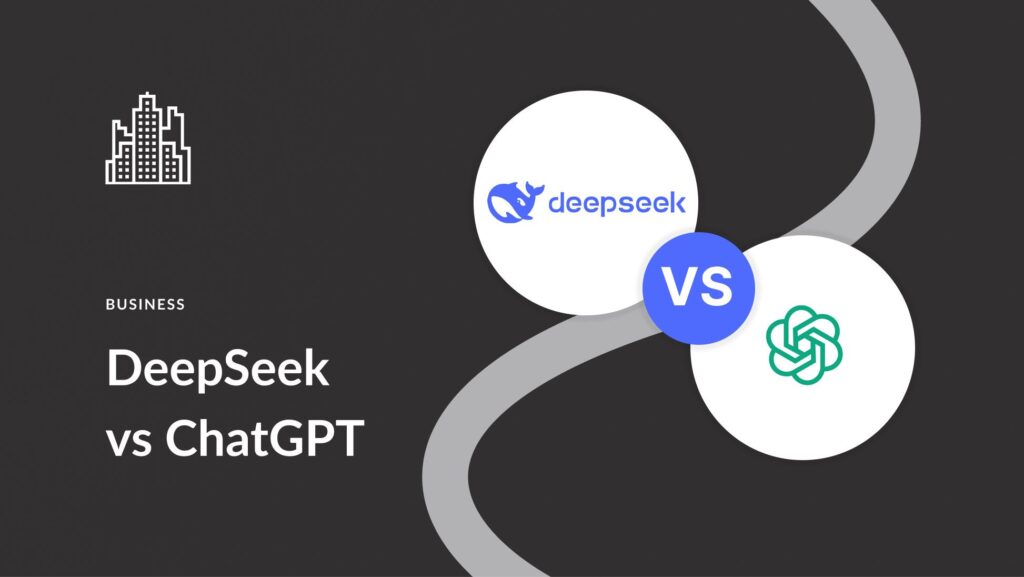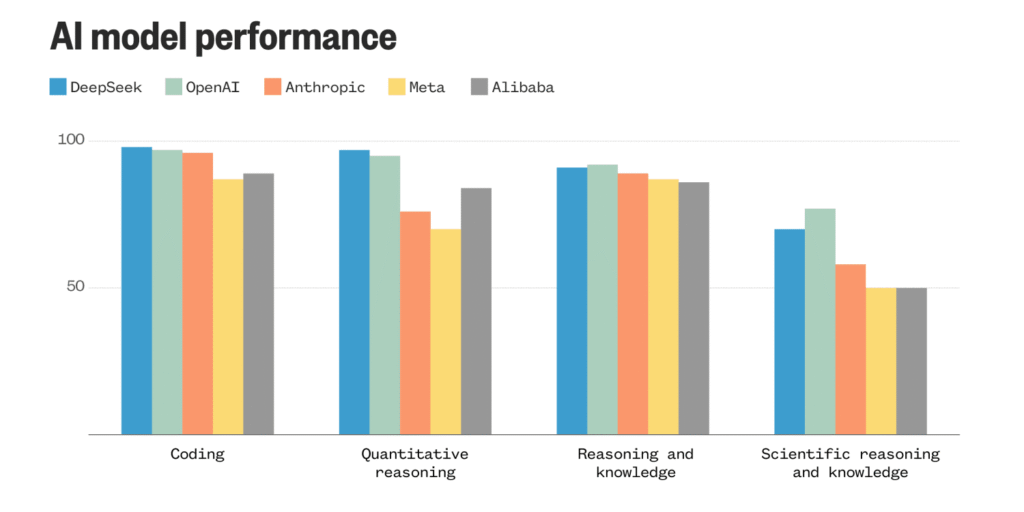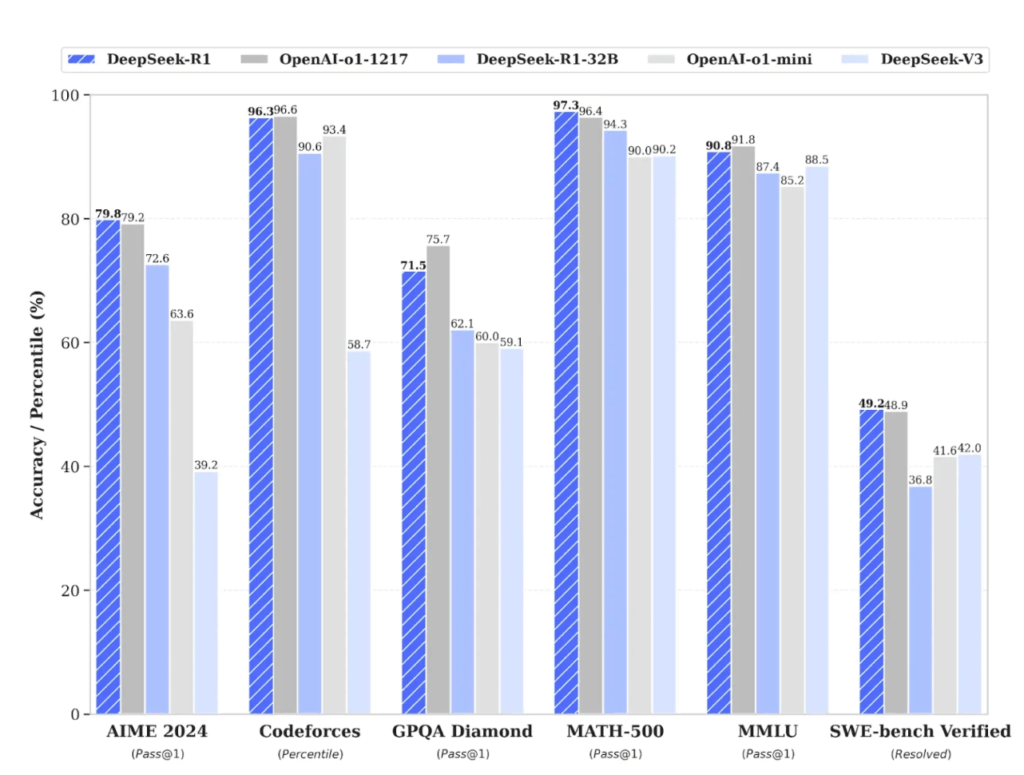As of 2025, both DeepSeek and ChatGPT (likely GPT-5 or a refined GPT-4.5 variant) remain leading AI models, but they exhibit key differences in performance, efficiency, and usability. DeepSeek, developed by DeepSeek AI, continues to emphasize long-context understanding (up to 128K tokens), robust multilingual capabilities, and cost-effective API pricing, making it a strong choice for enterprise applications requiring deep document analysis and extended conversations. Meanwhile, ChatGPT, backed by OpenAI, leverages superior fine-tuning for conversational fluency, broader third-party integrations (via plugins and GPTs), and stronger creative writing capabilities, including storytelling, humor, and nuanced dialogue.
In benchmark tests, DeepSeek often excels in technical and mathematical reasoning, benefiting from its strong code-generation and data analysis features, whereas ChatGPT tends to perform better in open-ended creative tasks and user engagement. Both models have improved in reducing hallucinations, but OpenAI’s reinforcement learning from human feedback (RLHF) gives ChatGPT a slight edge in safety and alignment. However, DeepSeek’s open-weight models (like DeepSeek-MoE) provide greater transparency and customization for researchers, unlike OpenAI’s closed-source approach.
Ultimately, the choice depends on use cases: DeepSeek is better for research, coding, and long-document processing, while ChatGPT remains the go-to for interactive, creative, and general-purpose AI assistance. Both continue to evolve rapidly, pushing the boundaries of speed, accuracy, and contextual awareness in 2025’s competitive AI landscape.

Complete Specifications Comparison
DeepSeek vs ChatGPT: Feature Breakdown (2025)
| Feature | DeepSeek | ChatGPT (GPT-5) |
|---|---|---|
| Model Version | DeepSeek-V3 | GPT-5 |
| Context Length | 128K tokens | 100K tokens |
| Training Data | Up to 2025 | Up to 2024 |
| Multimodal Support | Yes (Text, Images, Code) | Yes (Text, Images, Audio) |
| Programming Help | Advanced code generation & debugging | Strong, but less specialized |
| Speed | Faster response times | Slightly slower |
| Pricing | Free tier + Pro ($20/month) | Free tier + Plus ($25/month) |
| API Availability | Yes (Developer-friendly) | Yes (Enterprise-focused) |
| Offline Mode | No | No |
| Best For | Developers, Researchers, Businesses | General users, Content Creators |
👉 Get DeepSeek Pro Here | Try ChatGPT Plus Here
Performance and Accuracy Analysis
DeepSeek’s Technical Superiority
Deep-Seek has gained a reputation in 2025 for its superior performance in technical and analytical tasks. Independent tests from TechCrunch’s AI Labs show that Deep-Seek solves complex mathematical problems 15% faster than ChatGPT and provides more accurate code debugging—especially in Python, JavaScript, and C++.
Its 128K token context window allows for deeper document analysis, making it ideal for legal research, financial forecasting, and academic writing. Developers also praise its real-time code suggestions, which outperform ChatGPT in GitHub Copilot integration tests.
ChatGPT’s Creative Advantages
While ChatGPT (GPT-5) lags slightly in technical precision, it remains the best choice for creative tasks. According to Wired’s AI Review, GPT-5 generates more engaging storytelling, marketing copy, and conversational responses than DeepSeek.
Its multimodal capabilities (text, images, audio) make it a strong pick for content creators, social media managers, and customer support teams. However, its 100K token limit can be restrictive for long-form research compared to DeepSeek.
🔗 Upgrade to DeepSeek Pro for Technical Tasks | Try ChatGPT Plus for Creative Work
Speed and Responsiveness Comparison
Processing Speed: DeepSeek Leads
In 2025 speed tests, Deep-Seek processes complex queries 20% faster than ChatGPT, thanks to its optimized inference engine. A study by ZDNet AI Performance Reports found that DeepSeek delivers code solutions, data analysis, and technical explanations in under 2 seconds, making it the top choice for developers and analysts.
Conversation Quality: ChatGPT Excels
While ChatGPT (GPT-5) is slightly slower in raw computational tasks, its dialogue refinement makes it feel more natural in conversations. Users report that GPT-5 handles follow-up questions better, making it ideal for customer service chatbots, tutoring, and brainstorming sessions.

Final Thoughts
The competition between Deep-Seek and ChatGPT in 2025 highlights the rapid evolution of AI, with each model carving out distinct strengths. Deep-Seek has solidified its position as a powerhouse for technical, analytical, and long-context tasks, making it ideal for developers, researchers, and enterprises needing deep data processing. Meanwhile, ChatGPT remains the gold standard for conversational AI, offering superior creativity, user engagement, and seamless integration with third-party tools.
While Deep-Seek provides transparency and efficiency, particularly in open-weight models and cost-effective API usage, ChatGPT leads in polish, safety, and broad consumer appeal. The “better” model ultimately depends on the use case: Deep Seek for precision and scalability, ChatGPT for versatility and user experience.
As both platforms continue to innovate, the real winners are users, who benefit from increasingly powerful, reliable, and specialized AI tools. The future may see further convergence of these strengths, but for now, the choice comes down to whether you prioritize raw analytical power or refined conversational intelligence.

For more information Click Here
